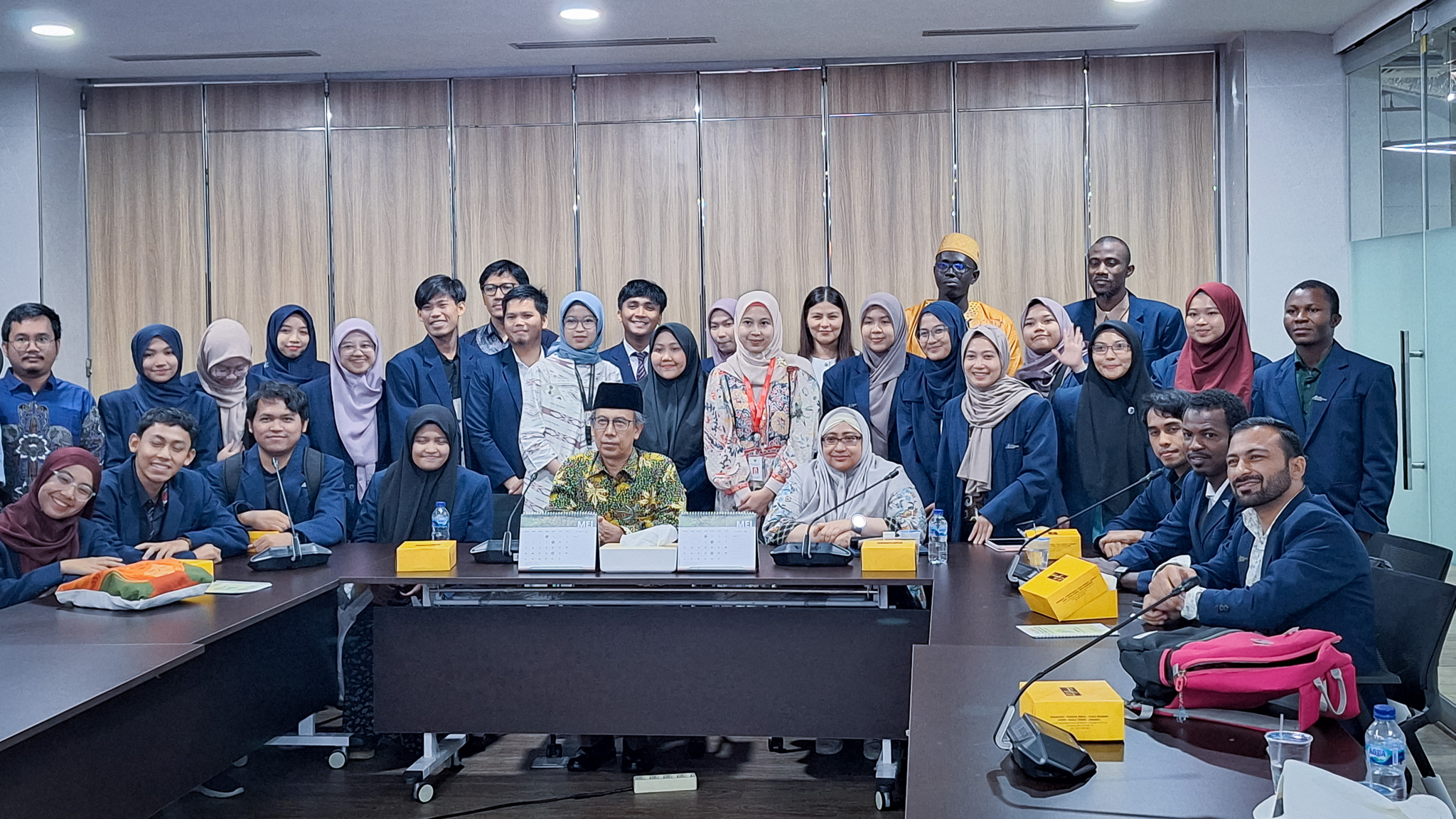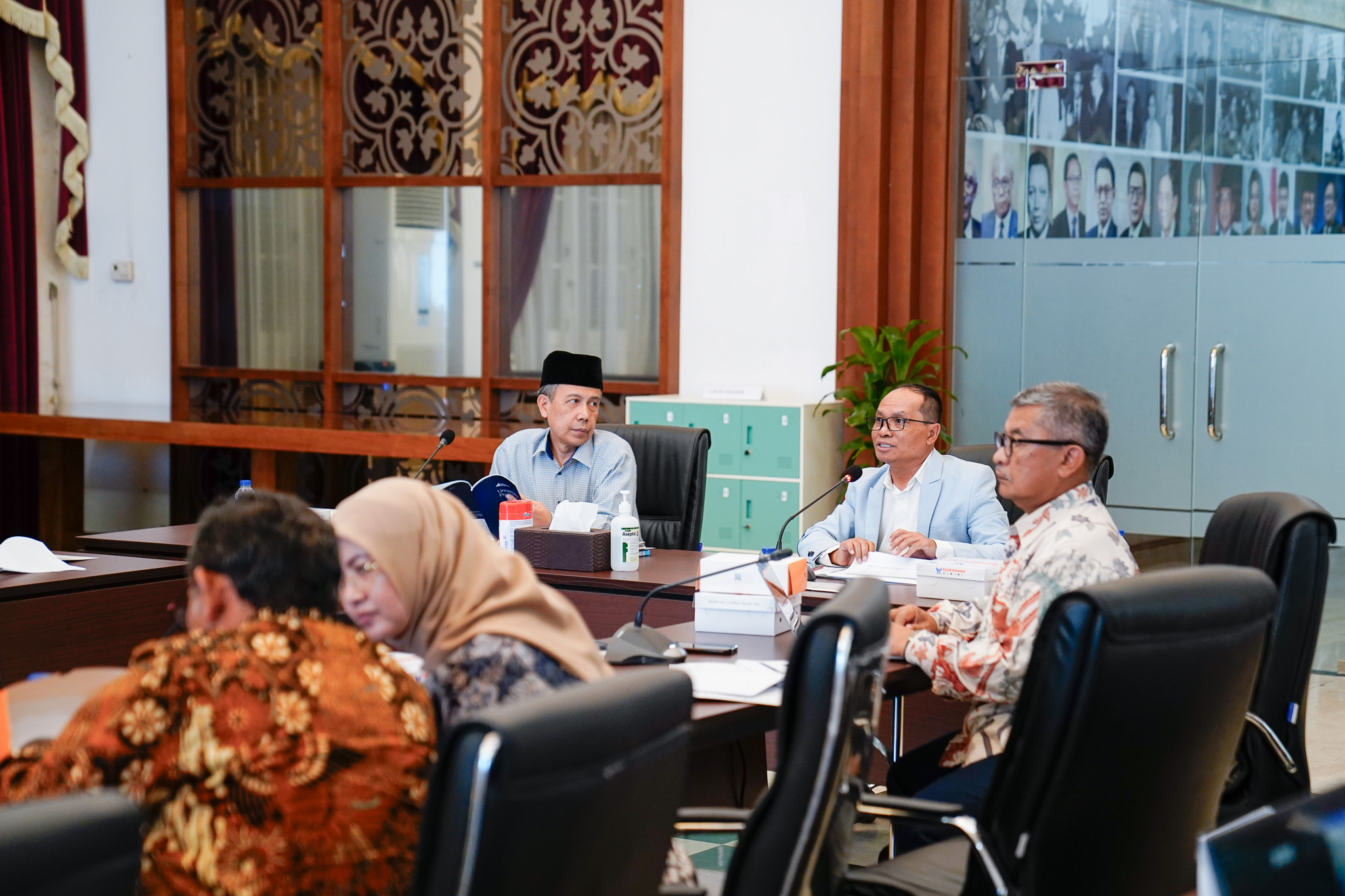UIII’s FoE Students Look into Policy-Making Process through Bappenas Visit
June 12, 2023Contributor: Maroof Ahmed | Editor: Supriyono
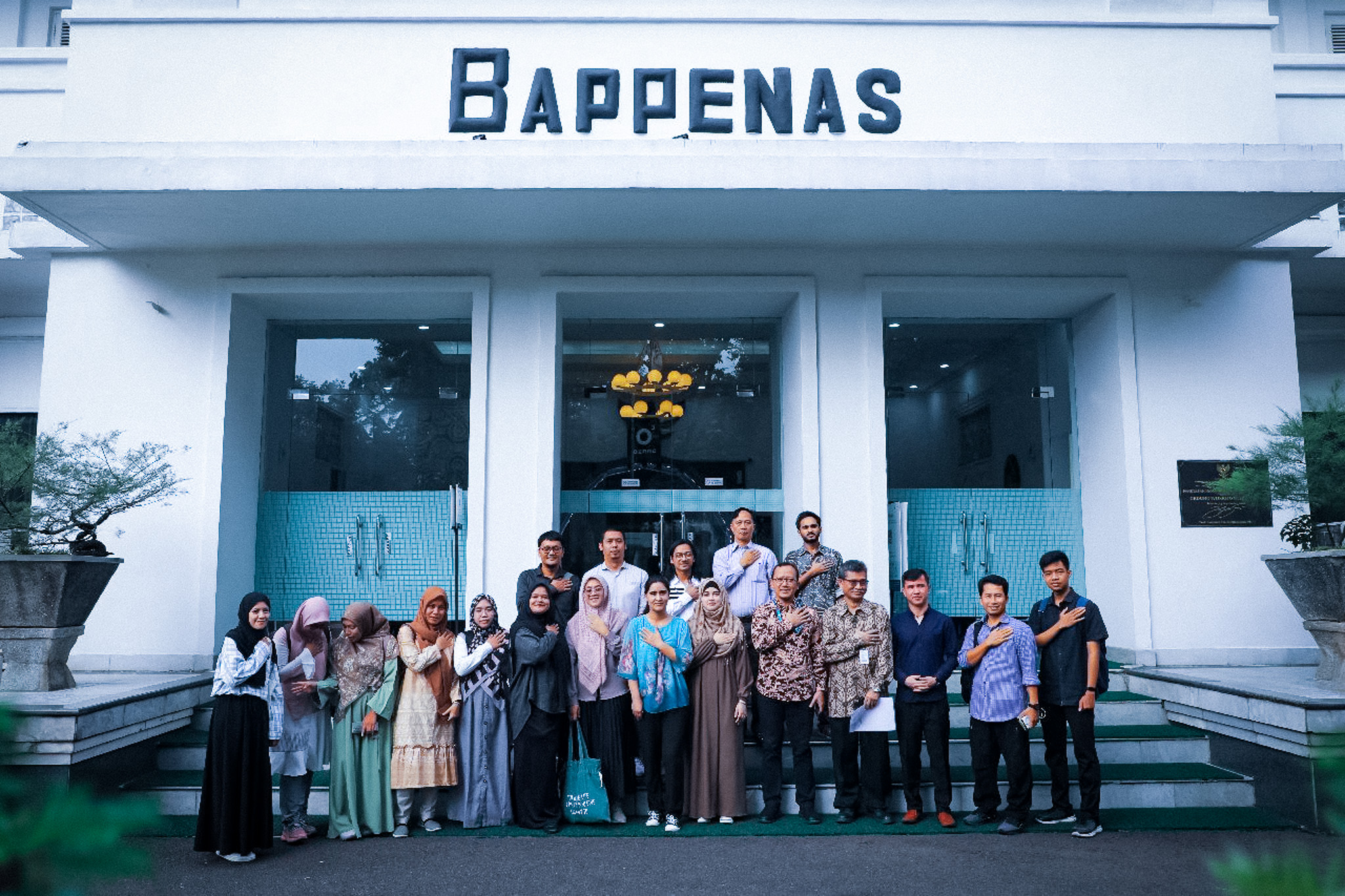
On May 29, 2023, the second batch of MA students at the Faculty of Education (FoE) of the Universitas Islam Internasional Indonesia (UIII) had the opportunity to visit the Ministry of National Development Planning of the Republic of Indonesia (Bappenas) in Central Jakarta.
The educational visit, under the guidance of their lecturer, Dr. Lukman Nul Hakim, was part of their Educational Policy Analysis course, providing them with a closer look at the policy-making process in the country.
Bappenas is a ministry that creates coordination between institutions at the national and local levels for planning, budgeting, rules, and regulations. It also formulates and decides the government of Indonesia's development policies.
The students’ arrival at Bappenas was met with cordial reception by Dr. Amich Alhumami, Deputy for Human Development, Society and Culture, and Mr. Marsono, the Public Relations Officer.
Mr. Marsono guided the students through the premises, followed by an enlightening series of talks on educational policymaking, planning, and budgeting, led by Dr. Amich Alhumami, Mr. Suprapto Budinugroho, and Mrs. Endang Sulastri, the acting Director of Higher Education and Science and Technology.
During the session, students dived deep into the intricacies of policy formulation, highlighting the commitment and complexity inherent in the process. The insights offered a pragmatic viewpoint, shaping a well-rounded understanding of Indonesia's policy-making landscape and the government's unwavering commitment to enhancing educational quality.
Catur Niasari, one of the participants, shared her thoughts on the experience. "During the Bappenas visit, I learned about the complex process of policymaking. I developed the ability to evaluate and assess how policies are applied in practice as an Indonesian citizen," said Niasari.
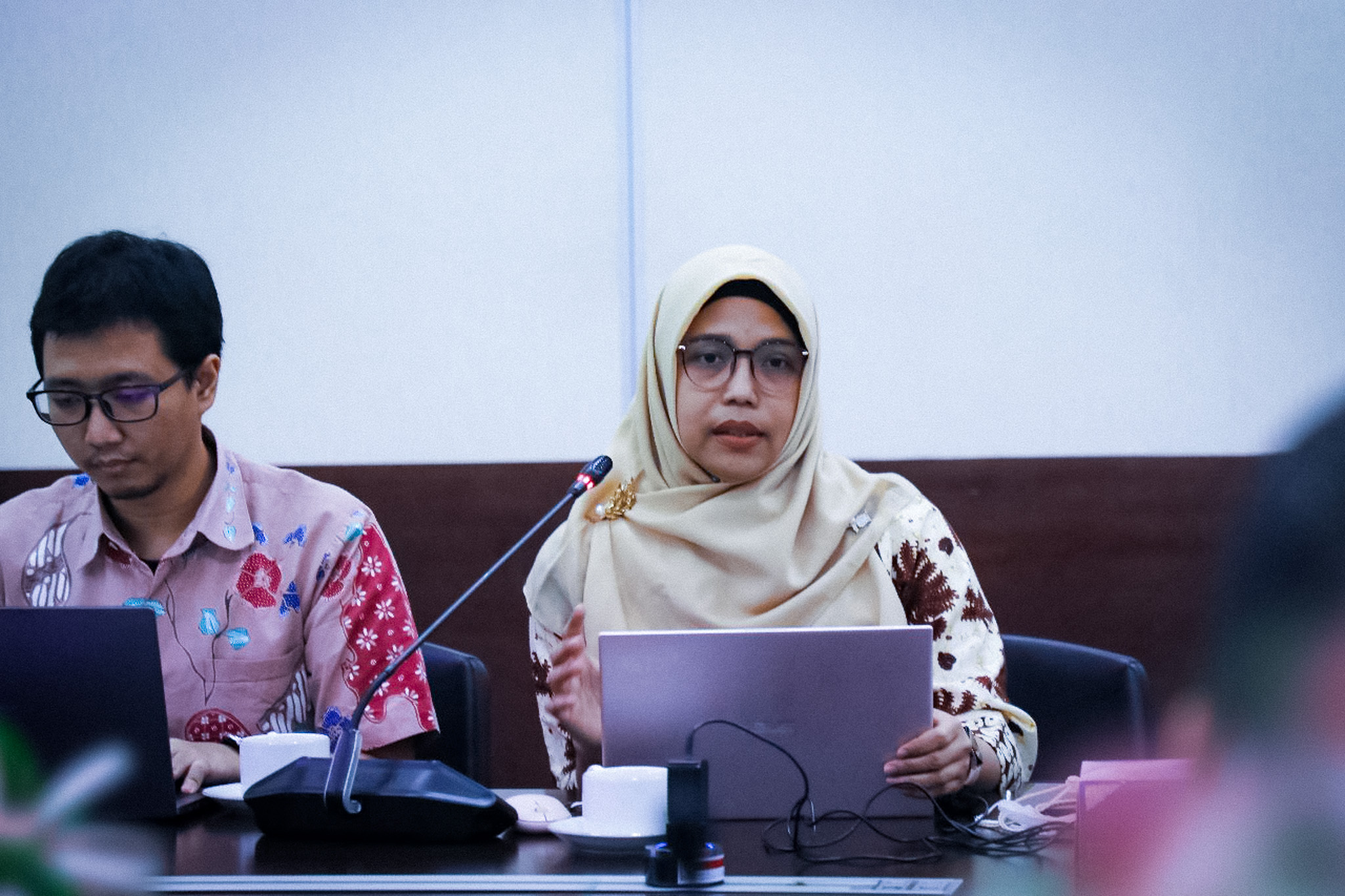
She added that the government's allocation of substantial funds for higher education was evident and commendable. However, Niasari expressed her concerns about the under-representation of early childhood education in budget allocation, given its critical role in national development.
Meanwhile, an Afghani student Mir Hussain Amiri observed both similarities and differences in policy implementation between Indonesia and his home country. "There is no independent policy-making administration in Afghanistan, unlike Bappenas in Indonesia. The foundation of a country is education, and any country that allocates most funds to education will progress as much," said Amiri.
Another student, Ghufronakallah, found the visit illuminating. "This visit impressed me and made me understand how essential education is in growing human resources and economic progress in Indonesia," said Ghufronakallah.
She also outlined various challenges that the country is grappling with, such as increasing school enrollment rates, improving educational infrastructure, strengthening human resources, and fostering innovation and technology development.
In her view, education needs to be an integral part of the solution to these problems. As she put it, "Education must become an integral part of national development planning and implementation.” Inspired by the visit, Ghufronakallah committed to taking an active part in addressing these challenges within Indonesia's education system.
Meanwhile, Andi Ibrahim Ali, another attendee, shared his understanding of the nation's education situation. "I can see the commitment of our central government to push the quality of education," said Ali, adding that creating a policy that penetrates the province and city/regency level is a challenging task.
Ali pointed out the indispensable role of quality education in establishing a strong nation and emphasized the potential for achieving a "golden Indonesia 2045" if strong education policies can penetrate even the outermost areas of Indonesia.
The visit to Bappenas provided UIII's FoE students with a rare opportunity to learn about national policymaking firsthand. This experience provided them with a deeper understanding of the complexity of the Indonesian education system and inspired them to be part of its continuous growth and development.
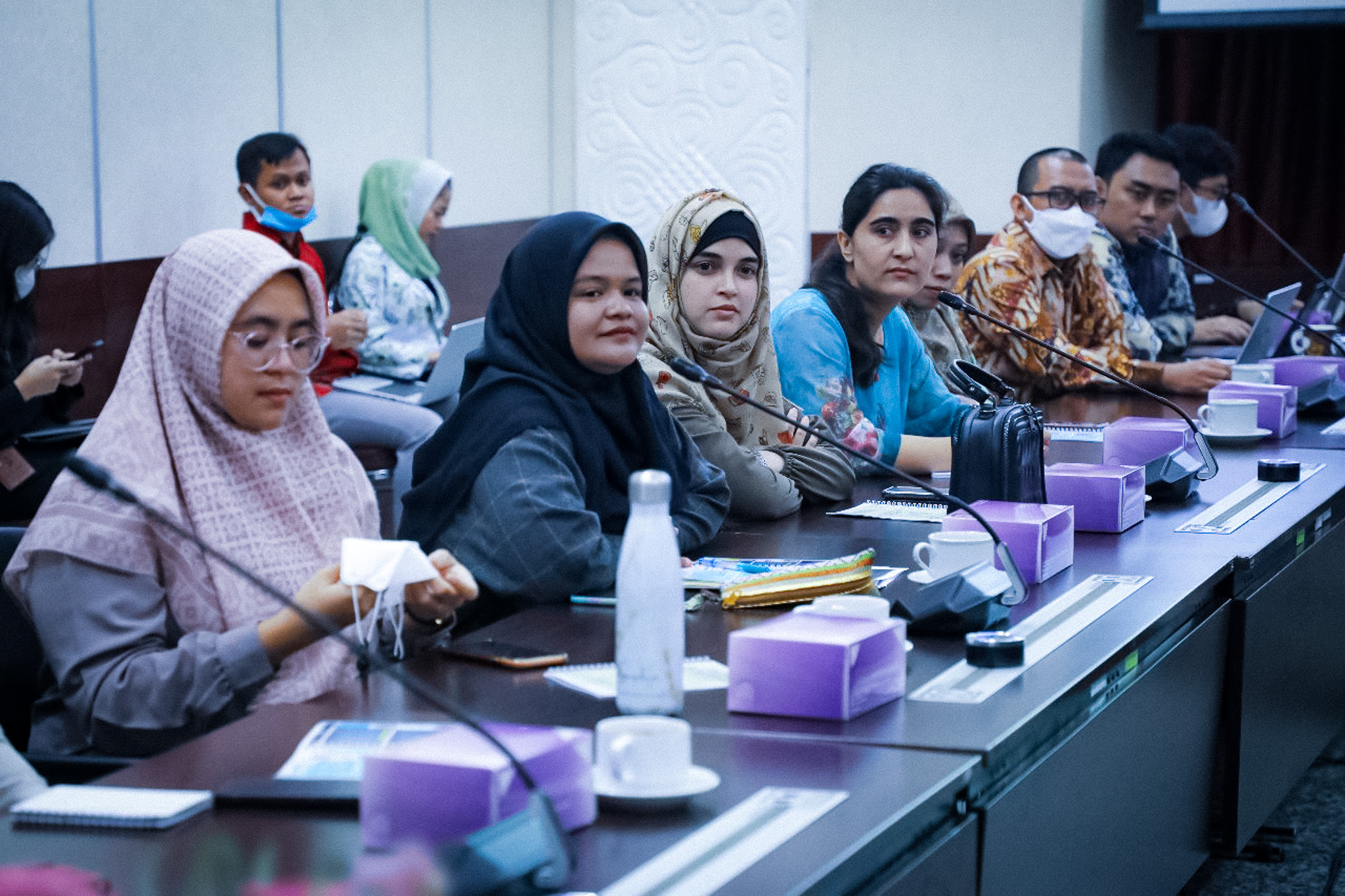
- UIII Extends Application Deadline for 2025 International Admissions
- What Does Eid al-Fitr Mean for the UIII Academic Community?
- UIII PhD Scholar Ararat Kostanian Delivers Lecture at Armenia's Yerevan State University
- Swedish Ambassador to Indonesia Applauds UIII’s Vision, Explores Future Collaboration
- Depok Mayor Supports UIII as the Green Lung of Depok and Beyond
- Depok Mayor Pledges to Build Performance Hall at UIII
- New Parking Facility Launched, Part of UIII-Sentra Medika Hospital Partnership
- Yogyakarta’s UII Won 1st FisFastFest’s Clash of Campuses
- Vice Minister of Religious Affairs Praises UIII as a Global Hub for Islamic Education
- Hurray!! UIII Wins Football Championship
